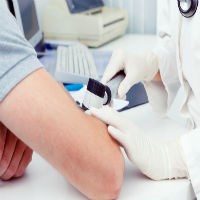NICE emphasises the importance of urgent referral in suspected melanoma
21 Sep 2016 02:36 PM
GPs should refer people with suspected malignant melanoma for an appointment within 2 weeks, says NICE in a new quality standard.

The new quality standard sets out the key areas where skin cancer services need to improve.
Data shows that 29% of malignant melanomas were still being referred to secondary care via the standard GP referral in 2013, which in some trusts was between 4 and 6 weeks.
The standard makes it clear that GPs should refer people with suspected malignant melanoma for an appointment within 2 weeks. It recommends that GPs who remove low-risk basal cell carcinomas should maintain and audit records of their caseloads.
Dr Rachael Robinson, GPSI and trust fellow in dermatology, Harrogate District Foundation Trust and member of the quality standard advisory committee, said: “There are competent GPs who are trained to perform basal cell carcinoma skin surgery and may do this in GP surgeries or part of a community clinic.
“However there is currently no agreed process in place to support good practice in this area and so this quality statement seeks to address this by recommending those GPs maintain training standards, record activity and perform audits.
“The statement on sentinel lymph node biopsy may have a big impact. Whilst it is not available in every hospital and is not always offered to patients even where it is available, it can be a useful tool for accurately staging the melanoma which can give more information which may be helpful for some patients.
“It can enable patients’ entry into clinical trials where there are interesting developments at the moment.”
Professor Gillian Leng, deputy chief executive of NICE, said: “Melanoma causes more deaths than all other skin cancers combined and we don’t have reliable data for the spread of non-melanoma skin cancers.
“This quality standard tackles the key areas for improvement in skin cancer care, from promotion of the warning signs, to early diagnosis, to better treatment options.
“We want to improve the outcome for everyone diagnosed with skin cancer.”
Skin cancer can be split into two groups: malignant melanoma, which can prove fatal, and non-melanoma skin cancers such as squamous cell carcinoma and basal cell carcinomas which are rarely fatal.
Over the last decade rates of malignant melanoma have increased by almost 50% in the UK. In England in 2013 there were 12,246 new cases and in 2014 2,080 people died from malignant melanoma.
Non-melanoma skin cancers are more common with 72,100 new cases diagnosed in the UK in 2013, but experts say the true number is significantly higher.